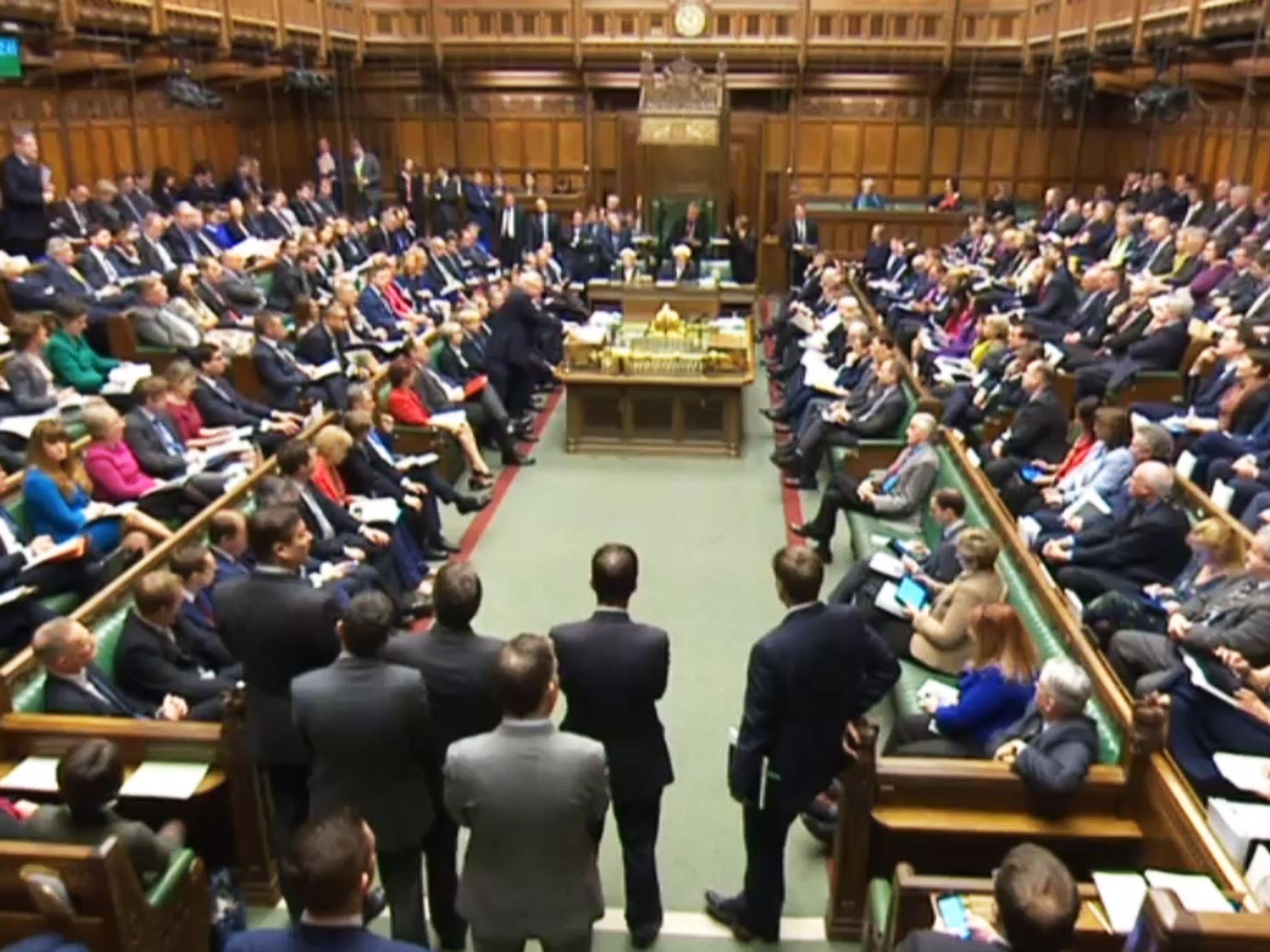Your support helps us to tell the story
From reproductive rights to climate change to Big Tech, The Independent is on the ground when the story is developing. Whether it's investigating the financials of Elon Musk's pro-Trump PAC or producing our latest documentary, 'The A Word', which shines a light on the American women fighting for reproductive rights, we know how important it is to parse out the facts from the messaging.
At such a critical moment in US history, we need reporters on the ground. Your donation allows us to keep sending journalists to speak to both sides of the story.
The Independent is trusted by Americans across the entire political spectrum. And unlike many other quality news outlets, we choose not to lock Americans out of our reporting and analysis with paywalls. We believe quality journalism should be available to everyone, paid for by those who can afford it.
Your support makes all the difference.Most British MPs believe that the UK need not leave the single market in order to honour the EU referendum result, a new study has found.
A survey of parliamentarians by Ipsos MORI found that just a quarter of MPs across all parties – 26 per cent – believe the referendum contained an explicit required mandate to leave the trading bloc.
The finding jars with the approach taken by Theresa May – who explicitly pledged to leave the single market in a speech earlier this month. She claimed in her address that remaining in the single market “would mean being bound by EU laws" and that it would "mean in practise not leaving the EU".
The results suggest many MPs are privately sceptical of the PM's claim that leaving the trade element of the EU somehow follows from the referendum result – but may not be speaking up due to fear of a backlash – either from the public or party whips.
The pent-up difference of opinion could mean further problems down the line for the Government depending on the deal offered to MPs after negotiations. In a Commons debate on triggering Article 50 on Tuesday just a few MPs indicated that they would vote against starting the negotiation process on the terms Ms May has outlined.
Other questions in the survey show that Eurosceptic MPs are relatively united on priorities for leaving the EU – but that opposition to Brexit is more fragmented.
72 per cent of Leave MPs want to prioritise controlling immigration or not paying into the EU budget in negotiations. Remain MPs are however split on whether access to the single market, controlling immigration, or paying into the EU budget should take priority – with other esoteric positions also represented.
Unsurprisingly Leave MPs are incredibly optimistic about the UK’s chances after Brexit. All the euroscpetic MPs interviewed believe it will be easy to quickly sign trade deals with major powers such as China, while just a quarter of Remain MPs believed this.
Ipsos MORI’s Reputation Centre interviewed 101 MPs between 31 October and 21 December 2016 and weighted the results to be a representative sample of the House of Commons.
The survey was conducted by the pollster for QMUL’s Mile End Institute and the UK in a Changing Europe think-tank.
Professor Tim Bale of Queen Mary University of London argued:
“This shows how deeply Brexit has divided parliamentary opinion across a range of issues. The divide is not just between those who see the glass half full or half empty; it’s a real divide between panglossians and pessimists.”
UK in a Changing Europe director Professor Anand Menon said: “Leavers want to control immigration at all costs. Remainers are much more divided over what to prioritise – which may well make them less able to shape the debate.”

Join our commenting forum
Join thought-provoking conversations, follow other Independent readers and see their replies
Comments